German Shepherd Life Expectancy
German Shepherds are among the world’s most beloved dog breeds, known for their intelligence, loyalty, and versatility as both family companions and working dogs. One of the most important questions potential owners ask is about German Shepherd life expectancy and what factors influence how long these magnificent dogs live. Understanding the typical lifespan of German Shepherds and the elements that can affect their longevity is crucial for providing the best possible care throughout their lives.
The average German Shepherd life expectancy ranges from 9 to 13 years, with most dogs living around 10-11 years. However, many factors can influence this lifespan, including genetics, diet, exercise, healthcare, and overall quality of life. By understanding these factors and implementing proper care strategies, owners can help their German Shepherds live longer, healthier, and more fulfilling lives.
German Shepherd Life Expectancy: The Numbers
The German Shepherd life expectancy is considered average for large breed dogs, though it’s somewhat shorter than many smaller breeds. Several studies and breed surveys have consistently shown that German Shepherds typically live between 9 and 13 years, with the average being approximately 10-11 years.
Factors Affecting Lifespan: The variation in German Shepherd life expectancy can be attributed to several key factors including genetic health, breeding quality, lifestyle, nutrition, veterinary care, and environmental conditions. Dogs from health-tested lines with responsible breeding practices often live longer than those from puppy mills or backyard breeders.
Gender Differences: Some studies suggest that female German Shepherds may have a slightly longer average lifespan than males, though the difference is typically small. Spayed and neutered dogs also tend to live longer than intact dogs due to reduced risks of certain cancers and reproductive issues.
Size Considerations: Within the breed, smaller German Shepherds often live longer than their larger counterparts, following the general trend that smaller dogs tend to have longer lifespans than larger dogs.

Appearance: The Classic German Shepherd
German Shepherds are large, athletic dogs with a distinctive appearance that has remained relatively consistent throughout the breed’s history.
Size and Build: Adult German Shepherds typically weigh between 50-90 pounds, with males being larger than females. Males usually stand 24-26 inches tall at the shoulder, while females stand 22-24 inches tall. They have a well-balanced, rectangular build that emphasizes both strength and agility.
Coat Characteristics: German Shepherds have double coats consisting of a dense undercoat and longer outer guard hairs. The coat can be medium or long length, with the medium-length coat being more common in show lines. Common colors include black and tan, sable, solid black, and occasionally white or blue variations.
Distinctive Features: The breed is known for its erect, pointed ears, intelligent dark eyes, and noble expression. They have a slightly elongated muzzle, strong jaw, and a bushy tail that typically hangs down with a slight curve.
Movement: German Shepherds are known for their efficient, ground-covering gait. Healthy dogs move with fluid, powerful strides that demonstrate their working heritage and athletic ability.

Personality and Temperament
The German Shepherd’s personality and temperament are key factors that have made them one of the world’s most popular breeds for both family life and professional work.
Intelligence: German Shepherds rank among the most intelligent dog breeds, typically placing third in intelligence rankings. They excel at problem-solving, learning complex commands, and adapting to new situations quickly.
Loyalty and Devotion: These dogs are renowned for their unwavering loyalty to their families. They often form particularly strong bonds with one primary person while remaining devoted to all family members.
Confidence and Courage: Well-bred German Shepherds display natural confidence and courage, making them excellent protection dogs and working companions. They face challenges head-on and rarely back down from situations requiring bravery.
Versatility: German Shepherds adapt well to various roles, from family pet to police work, military service, search and rescue, therapy work, and competitive dog sports.
Work Drive: Most German Shepherds have strong work drives and thrive when given jobs to do. They need mental stimulation and purpose to remain happy and well-behaved.
Alertness: These dogs are naturally alert and aware of their surroundings, making them excellent watchdogs who will alert their families to potential threats or unusual activities.
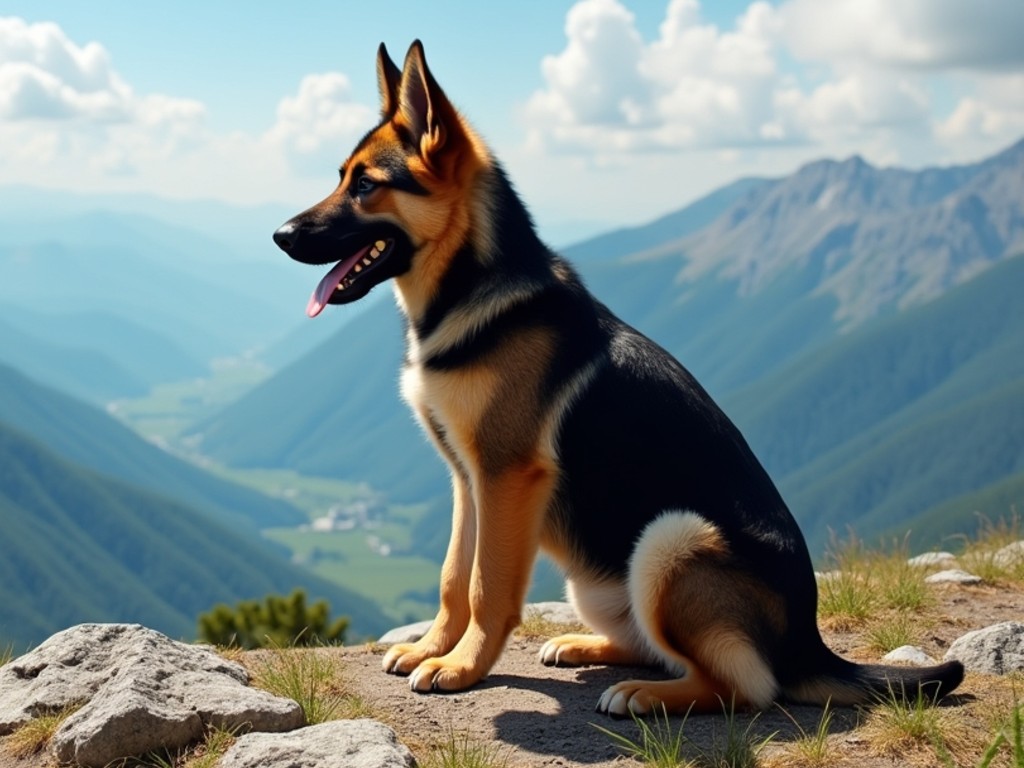
Factors That Influence German Shepherd Life Expectancy
Understanding the factors that can impact German Shepherd life expectancy helps owners make informed decisions about care and lifestyle choices.
Genetics and Breeding: Perhaps the most significant factor affecting lifespan is the genetic health of the dog’s lineage. Dogs from health-tested parents with no history of genetic diseases typically live longer than those from unhealthy lines.
Diet and Nutrition: Proper nutrition throughout life significantly impacts longevity. High-quality diets appropriate for each life stage, maintaining proper weight, and avoiding obesity all contribute to longer lifespans.
Exercise and Activity: Regular, appropriate exercise helps maintain muscle tone, joint health, cardiovascular fitness, and mental well-being, all of which contribute to longevity.
Veterinary Care: Regular checkups, preventive care, early disease detection, and prompt treatment of health issues can significantly extend a dog’s life.
Environmental Factors: A safe, stress-free environment with minimal exposure to toxins, extreme weather, or dangerous situations supports longer life expectancy.
Mental Stimulation: Keeping the mind active and engaged throughout life may help prevent cognitive decline and contribute to overall well-being in senior years.

Common Health Issues Affecting Life Expectancy
Several health conditions can impact German Shepherd life expectancy, making awareness and prevention crucial for owners.
Hip and Elbow Dysplasia: These joint conditions are common in German Shepherds and can significantly impact quality of life if severe. Early detection and management can help dogs live comfortably longer.
Degenerative Myelopathy: This progressive spinal cord disease affects many German Shepherds in their later years. While not immediately life-threatening, it can severely impact quality of life.
Bloat (Gastric Dilatation-Volvulus): This life-threatening emergency can be fatal if not treated immediately. Prevention strategies and awareness of symptoms are crucial.
Heart Disease: Various cardiac conditions can affect German Shepherds, including dilated cardiomyopathy and congenital heart defects.
Cancer: Like many large breeds, German Shepherds can be prone to various cancers, including hemangiosarcoma and osteosarcoma.
Epilepsy: Seizure disorders can affect quality of life, though many dogs with epilepsy can live normal lifespans with proper management.
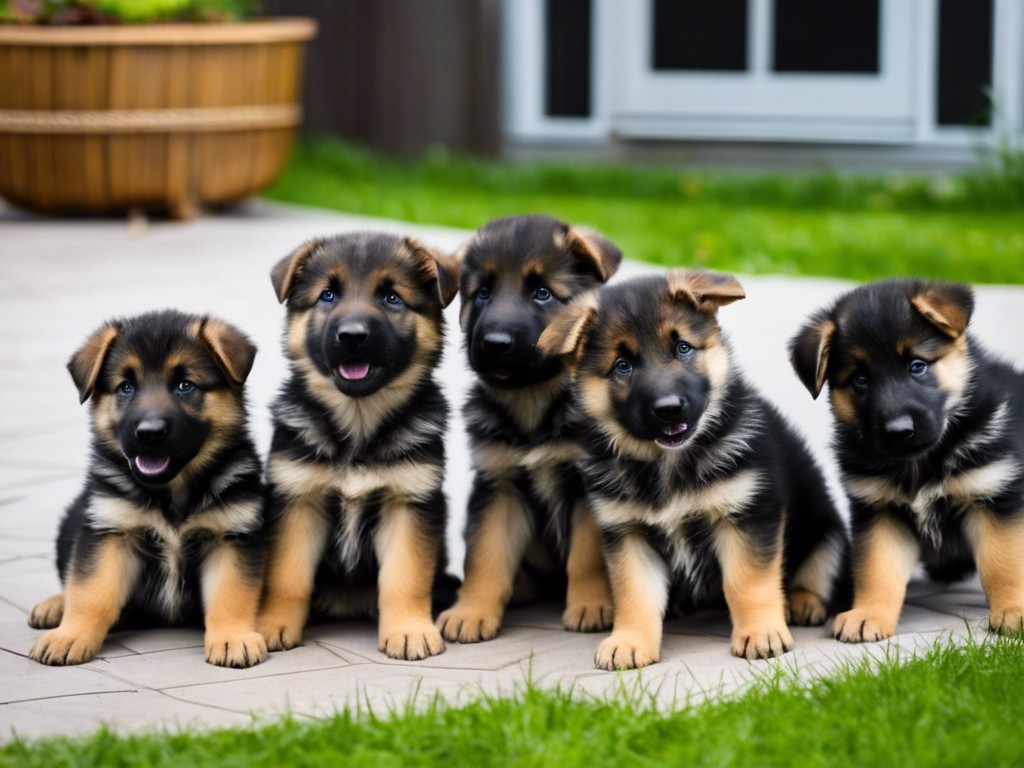
Grooming Requirements
Proper grooming contributes to overall health and can help detect health issues early, potentially impacting life expectancy.
Daily Brushing: German Shepherds require daily brushing to manage their heavy shedding and prevent matting. Regular brushing also allows owners to check for skin issues, lumps, or parasites.
Seasonal Coat Care: These dogs “blow” their coats twice yearly, requiring extra grooming attention during these periods to manage the heavy shedding.
Bathing: Bathe German Shepherds every 6-8 weeks or as needed. Over-bathing can strip natural oils and cause skin problems.
Nail Maintenance: Keep nails trimmed every 2-3 weeks to prevent overgrowth, splitting, and discomfort that could affect mobility.
Ear Care: Clean ears weekly to prevent infections that could impact hearing and overall comfort.
Dental Hygiene: Regular teeth brushing and dental care help prevent periodontal disease, which can affect overall health and longevity.
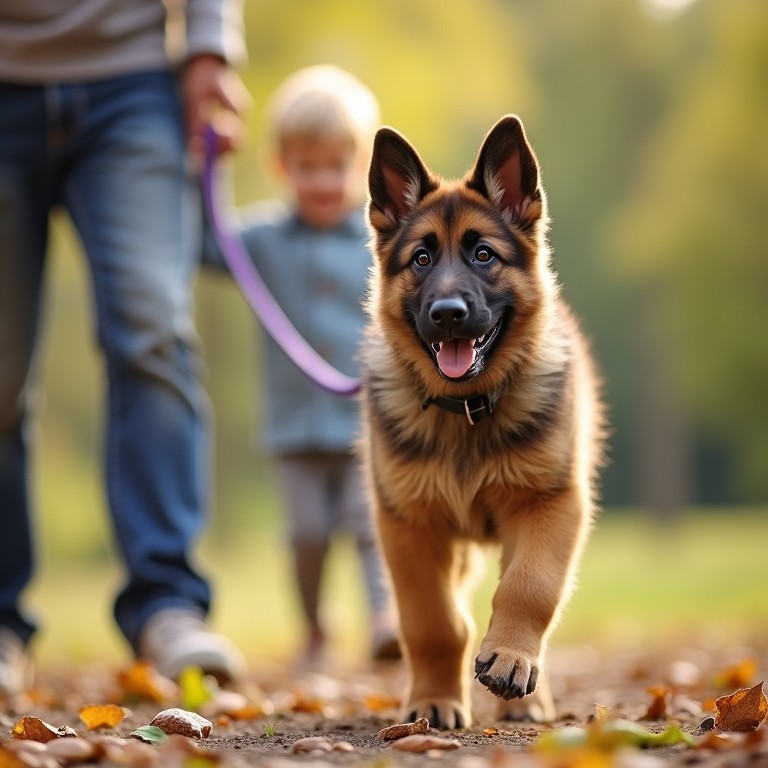
Care Throughout the Lifespan
Providing appropriate care throughout each life stage helps maximize German Shepherd life expectancy.
Puppyhood (0-18 months): Focus on proper nutrition for growth, early socialization, basic training, and establishing healthy routines. Avoid over-exercising growing joints.
Young Adult (18 months – 3 years): Continue training, provide adequate exercise and mental stimulation, maintain preventive veterinary care, and monitor for any developing health issues.
Adult (3-7 years): Maintain regular exercise routines, monitor weight, continue preventive care, and watch for early signs of common breed health issues.
Senior (7+ years): Increase veterinary monitoring, adjust exercise as needed, consider senior diet formulations, and focus on comfort and quality of life management.
Geriatric (10+ years): Provide supportive care for aging issues, manage any chronic conditions, ensure comfort, and make quality of life the primary focus.

Nutrition and Feeding
Proper nutrition throughout life is one of the most important factors in maximizing German Shepherd life expectancy.
Life Stage Nutrition: Feed appropriate formulations for each life stage – puppy food for growth, adult maintenance for mature dogs, and senior formulas for older dogs.
Quality Ingredients: Choose high-quality foods with named protein sources, appropriate fat levels, and minimal fillers or artificial additives.
Weight Management: Maintain proper body weight throughout life. Obesity significantly shortens lifespan and increases disease risk.
Portion Control: Feed measured portions twice daily rather than free-feeding to maintain healthy weight and prevent bloat.
Special Dietary Needs: Address any food allergies, sensitivities, or health conditions with appropriate dietary modifications.
Supplements: Consider joint supplements, omega fatty acids, or other veterinarian-recommended supplements to support long-term health.

Exercise Throughout the Lifespan
Appropriate exercise is crucial for maintaining health and maximizing German Shepherd life expectancy.
Puppy Exercise: Provide age-appropriate exercise that doesn’t stress developing joints. Short, frequent play sessions are ideal for young puppies.
Adult Exercise Needs: Adult German Shepherds need 2-3 hours of exercise daily, including walks, runs, play time, and mental stimulation activities.
Senior Exercise Adjustments: Modify exercise routines as dogs age, focusing on gentler activities that maintain mobility without causing stress or pain.
Mental Exercise: Provide mental stimulation throughout life through training, puzzle toys, and problem-solving activities to maintain cognitive function.
Consistency: Maintain regular exercise routines to support cardiovascular health, muscle tone, and mental well-being.
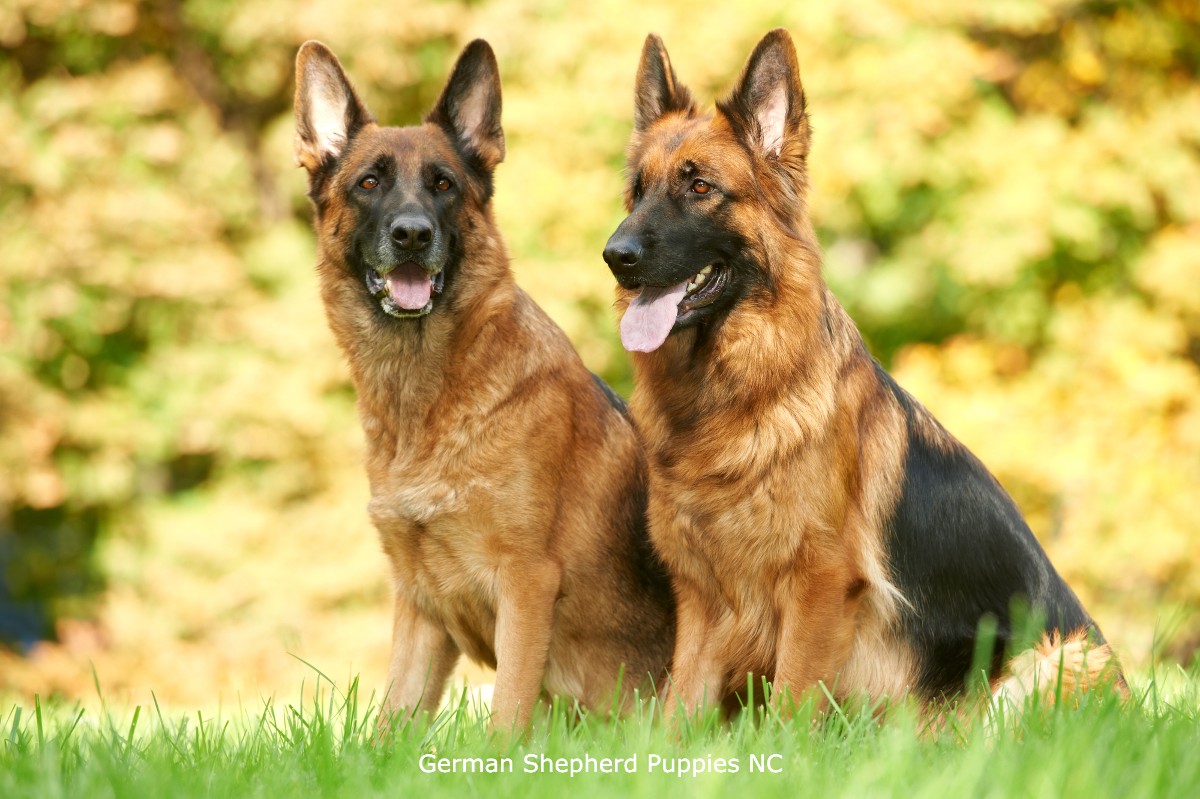
Maximizing German Shepherd Life Expectancy
Several strategies can help owners maximize their German Shepherd’s life expectancy and quality of life.
Choose Healthy Breeding: Start with a puppy from health-tested parents and reputable breeders who prioritize longevity and health over appearance alone.
Preventive Veterinary Care: Maintain regular checkups, vaccinations, parasite prevention, and early health screening to catch problems before they become serious.
Maintain Healthy Weight: Keep your dog at an optimal weight throughout life to reduce stress on joints and organs.
Provide Mental Stimulation: Keep the mind active and engaged throughout life to maintain cognitive function and prevent boredom-related problems.
Create a Safe Environment: Minimize exposure to toxins, dangerous situations, and excessive stress that could impact health and longevity.
Monitor for Changes: Stay alert to changes in behavior, appetite, energy levels, or physical condition that might indicate developing health issues.
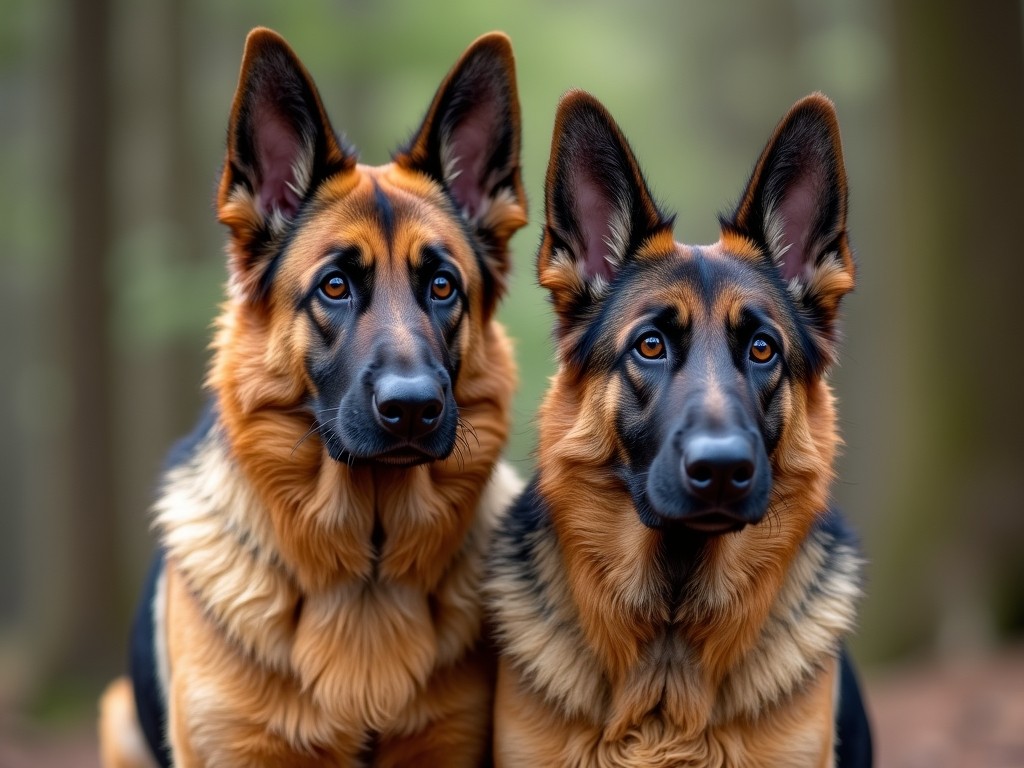
Training for Longevity
Proper training throughout life contributes to safety and can impact German Shepherd life expectancy.
Basic Obedience: Strong recall, leash manners, and basic commands help keep dogs safe in various situations throughout their lives.
Socialization: Well-socialized dogs experience less stress and are safer in various situations, contributing to longer, happier lives.
Impulse Control: Teaching self-control helps prevent dangerous behaviors and reduces stress-related health issues.
Cooperative Care: Train dogs to accept handling, grooming, and veterinary procedures calmly to ensure they receive necessary care throughout life.
Mental Enrichment: Use training as mental exercise to keep minds sharp and engaged throughout the aging process.
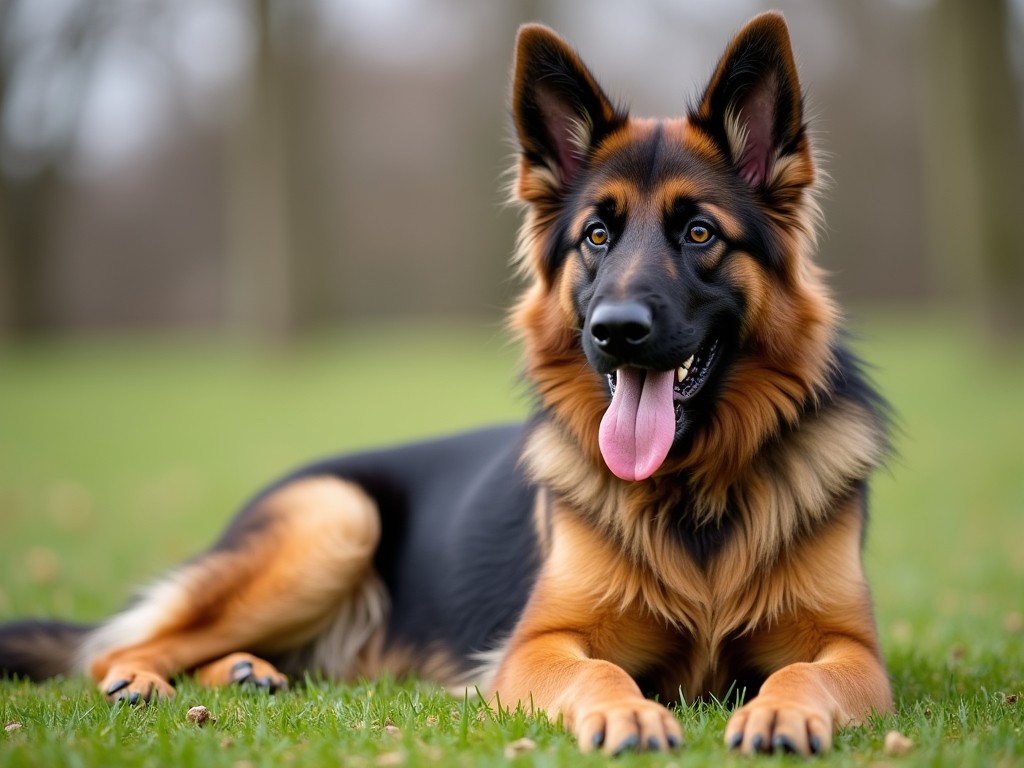
Pros of German Shepherd Ownership
Exceptional Loyalty: German Shepherds form incredibly strong bonds with their families and remain devoted throughout their lives.
High Intelligence: Their intelligence makes them highly trainable and adaptable to various family situations and activities.
Versatility: These dogs excel in multiple roles from family companion to working dog, therapy dog, or sport competitor.
Natural Protection: They provide excellent security and protection for families while being gentle with family members.
Active Lifestyle Companions: Perfect for families who enjoy outdoor activities, hiking, running, and active lifestyles.
Trainability: Their eagerness to please and intelligence make them excellent candidates for various types of training.
Strong Work Ethic: They thrive on having jobs to do and purpose in their lives, making them engaged family members.
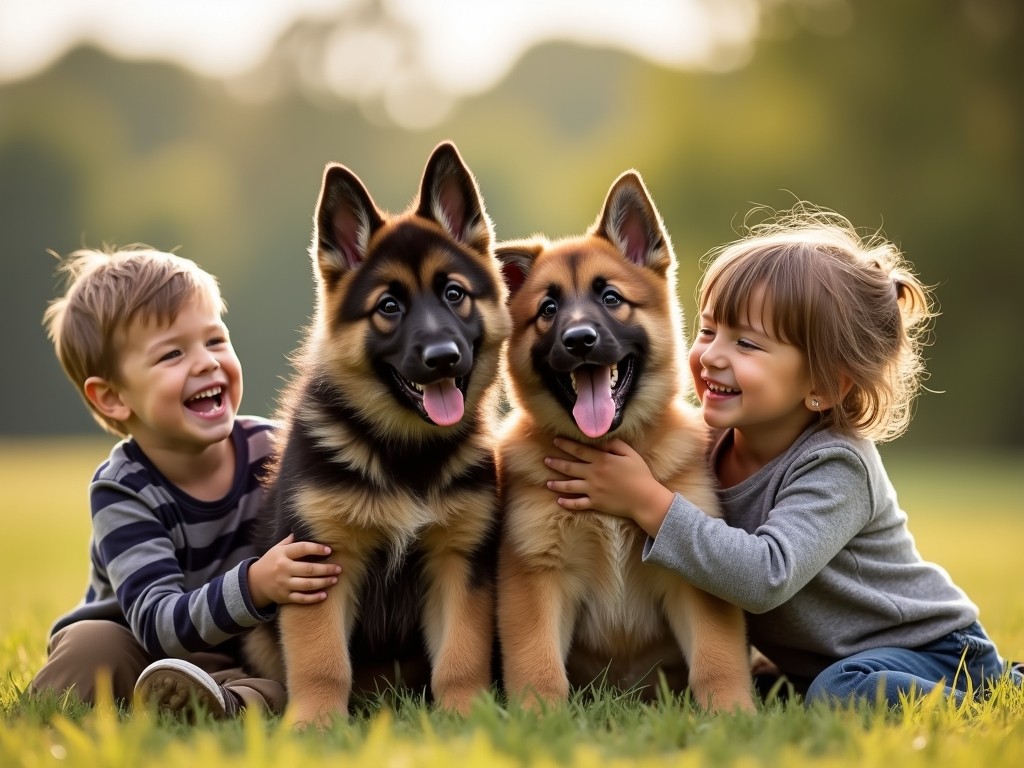
Cons of German Shepherd Ownership
Shorter Lifespan: The 9-13 year life expectancy means saying goodbye sooner than with many smaller breeds.
Health Concerns: Prone to several genetic health issues that can be expensive to manage and may impact quality of life.
High Exercise Needs: Require significant daily exercise and mental stimulation that may not suit all lifestyles.
Heavy Shedding: Year-round shedding with seasonal “coat blows” requires significant grooming commitment.
Size and Strength: Large, powerful dogs require experienced handling and proper training for safety.
Potential Behavioral Issues: Can develop destructive behaviors if not properly exercised and mentally stimulated.
Higher Costs: Large dogs have higher costs for food, veterinary care, medications, and supplies.
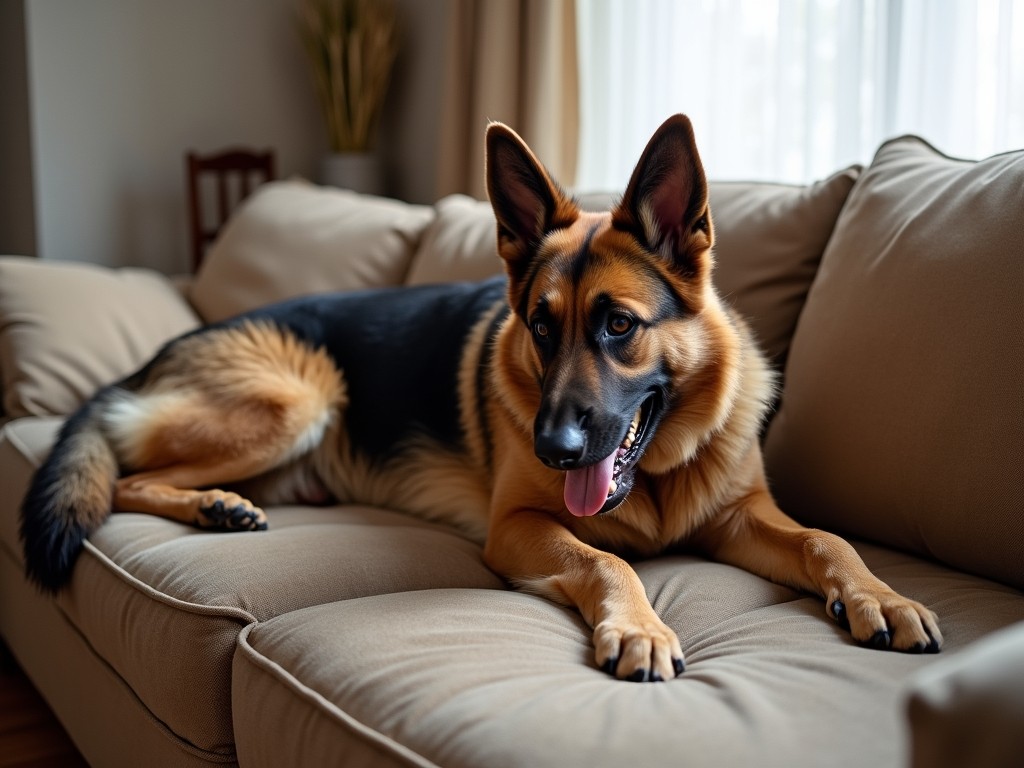
Are German Shepherds Good with Kids?
German Shepherds can be excellent family dogs and wonderful with children when properly socialized and trained throughout their lives.
Natural Protectiveness: German Shepherds often develop strong protective instincts toward children in their family, becoming devoted guardians and companions.
Gentle Nature: Despite their size and strength, well-socialized German Shepherds can be remarkably gentle with children, often seeming to understand their vulnerability.
Loyalty to Family: Their strong family bonds mean they typically include children as important family members worthy of protection and companionship.
Intelligence Benefits: Their high intelligence allows them to learn appropriate behavior around children and understand different rules for different situations.
Energy Match: Active children who enjoy outdoor play often make excellent companions for energetic German Shepherds.
Teaching Opportunities: These intelligent, trainable dogs provide excellent opportunities to teach children about responsibility, empathy, and animal care.
Supervision Importance: Due to their size, interactions with very young children should always be supervised to prevent accidental injuries.
Training Requirements: Success with children requires consistent training to ensure appropriate behavior and boundaries are maintained.

Senior Care and End-of-Life Considerations
Understanding how to care for aging German Shepherds helps maximize their comfort and quality of life in their later years.
Regular Health Monitoring: Increase veterinary checkups to twice yearly for dogs over 7 years to catch age-related issues early.
Comfort Modifications: Provide orthopedic bedding, ramps, and other modifications to help aging dogs remain comfortable and mobile.
Pain Management: Work with veterinarians to manage arthritis and other age-related pain to maintain quality of life.
Dietary Adjustments: Senior dogs may benefit from easier-to-digest foods, weight management diets, or therapeutic formulations.
Mental Health: Continue providing mental stimulation appropriate for senior dogs to maintain cognitive function.
Quality of Life Assessment: Regularly evaluate your dog’s quality of life and be prepared to make difficult decisions when necessary.

The Importance of Responsible Breeding
Choosing a puppy from responsible breeders significantly impacts German Shepherd life expectancy and overall health.
Health Testing: Reputable breeders test breeding dogs for hip dysplasia, elbow dysplasia, degenerative myelopathy, and other genetic conditions.
Longevity Focus: Quality breeders prioritize breeding for health and longevity rather than focusing solely on appearance or profit.
Genetic Diversity: Responsible breeding practices help maintain genetic diversity and reduce the risk of inherited health problems.
Early Care: Good breeders provide proper early care, socialization, and health screening that sets puppies up for longer, healthier lives.
We here at German Shepherd Puppies NC take great pride in breeding the best German Shepherd puppies in all of North Carolina. As North Carolina’s premier German Shepherd experts, German Shepherd Puppies NC has been breeding award-winning AKC quality German Shepherd puppies since 1991. Whether you’re looking for black German Shepherd puppies, white puppies, blue puppies, sable puppies, or long-haired puppies, we have the expertise and commitment to excellence that ensures each puppy is raised with proper socialization, health screening, and the foundation for a long, healthy life.
Our decades of experience in breeding German Shepherds gives us unique insights into maximizing health and longevity in our breeding lines. We conduct comprehensive health testing on all breeding dogs and focus on producing puppies with the genetic foundation for extended life expectancy.
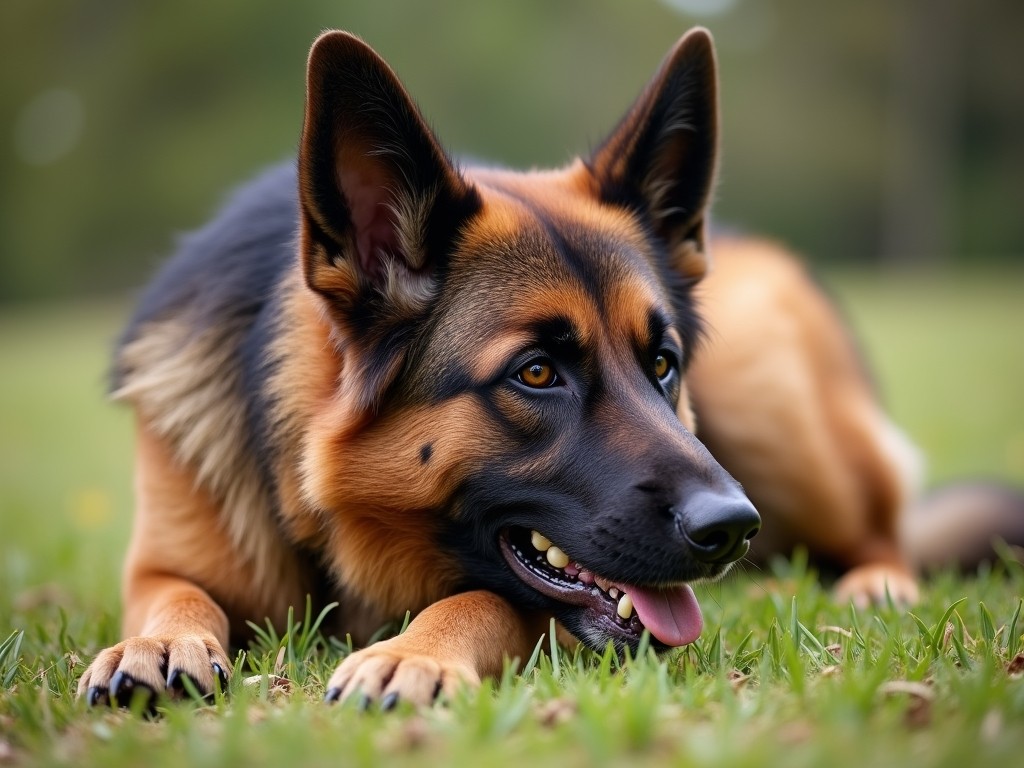
Making the Most of Your Time Together
Understanding German Shepherd life expectancy helps owners make the most of their time with these wonderful dogs.
Create Memories: Take advantage of your dog’s active years to create lasting memories through adventures, training achievements, and special experiences.
Document the Journey: Keep photos and records of your dog’s life to preserve memories of your time together.
Enjoy Each Stage: Appreciate the unique joys and characteristics of each life stage from playful puppy to wise senior.
Build Strong Bonds: Invest time in training, activities, and bonding experiences that strengthen your relationship.
Prepare for the Future: Understanding the typical lifespan helps owners prepare emotionally and financially for their dog’s care throughout life.

Conclusion
German Shepherd life expectancy of 9-13 years represents a meaningful but relatively short time to share with these extraordinary dogs. While we cannot control all factors that influence longevity, responsible ownership, proper care, quality breeding, and preventive health measures can help ensure German Shepherds live the longest, healthiest, and happiest lives possible.
Understanding the factors that influence lifespan empowers owners to make informed decisions about care, lifestyle, and health management throughout their dog’s life. From choosing a healthy puppy from responsible breeders to providing excellent care throughout all life stages, every decision can contribute to maximizing both the length and quality of your German Shepherd’s life.
For those considering adding a German Shepherd to their family, working with experienced, reputable breeders who prioritize health and longevity is essential. If you would like to request a German Shepherd puppy, please contact us as we here at German Shepherd Puppies NC would be glad to help you find a healthy puppy with the genetic foundation for a long, wonderful life. If you are looking for German Shepherd puppies for sale near me, then look no further than German Shepherd Puppies NC. Our commitment to excellence in breeding, combined with our understanding of factors that influence German Shepherd life expectancy, ensures that you’ll receive a puppy that’s been properly prepared for a lifetime of health and happiness as your family companion.
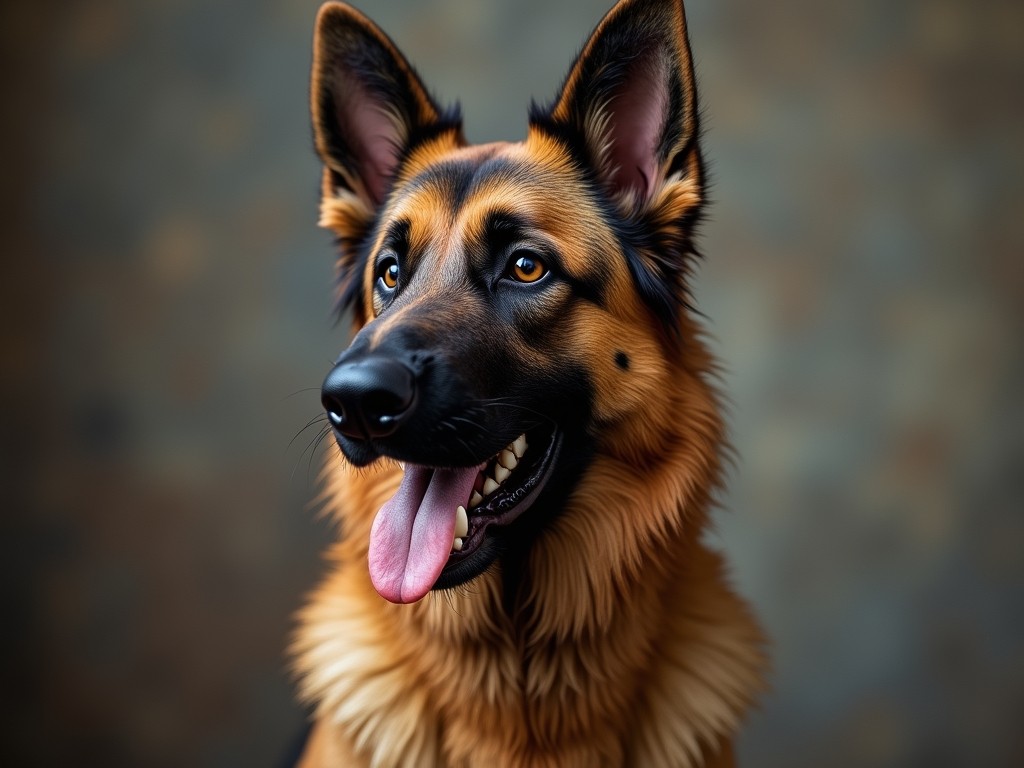
Border Collie German Shepherd Mix
The Border Collie German Shepherd mix, commonly known as the “Shollie,” represents a fascinating combination of two of the world’s most intelligent and capable working dog breeds. This hybrid brings together the Border Collie’s exceptional herding instincts and agility with the German Shepherd’s loyalty, protection capabilities, and versatility. The result is an extraordinarily intelligent, energetic, and devoted companion that excels in various roles from family pet to working dog.
Understanding the characteristics, needs, and care requirements of the Border Collie German Shepherd mix is essential for anyone considering adding one of these remarkable dogs to their family. This comprehensive guide will explore every aspect of owning and caring for a Shollie, helping you determine if this unique mix is the right fit for your lifestyle.
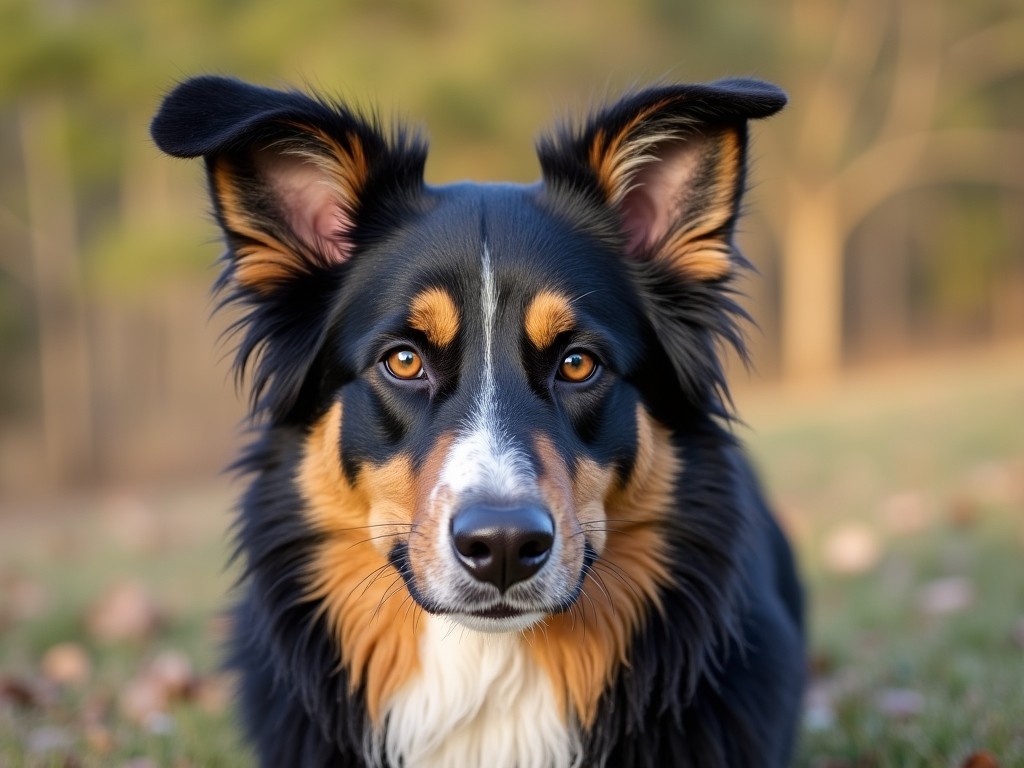
Understanding the Border Collie German Shepherd Mix
The Shollie is a first-generation hybrid that combines the best traits of both parent breeds. Border Collies are renowned for their intelligence, ranking as the smartest dog breed, while German Shepherds are famous for their loyalty, trainability, and versatility. When these two breeds are crossed, the resulting puppies often inherit the intelligence of both parents, creating dogs with exceptional learning capabilities and problem-solving skills.
This mix is not recognized by major kennel clubs as a standardized breed, meaning there can be significant variation in appearance and temperament even within the same litter. However, most Shollies tend to inherit the best characteristics of both parent breeds, making them outstanding companions for the right families.
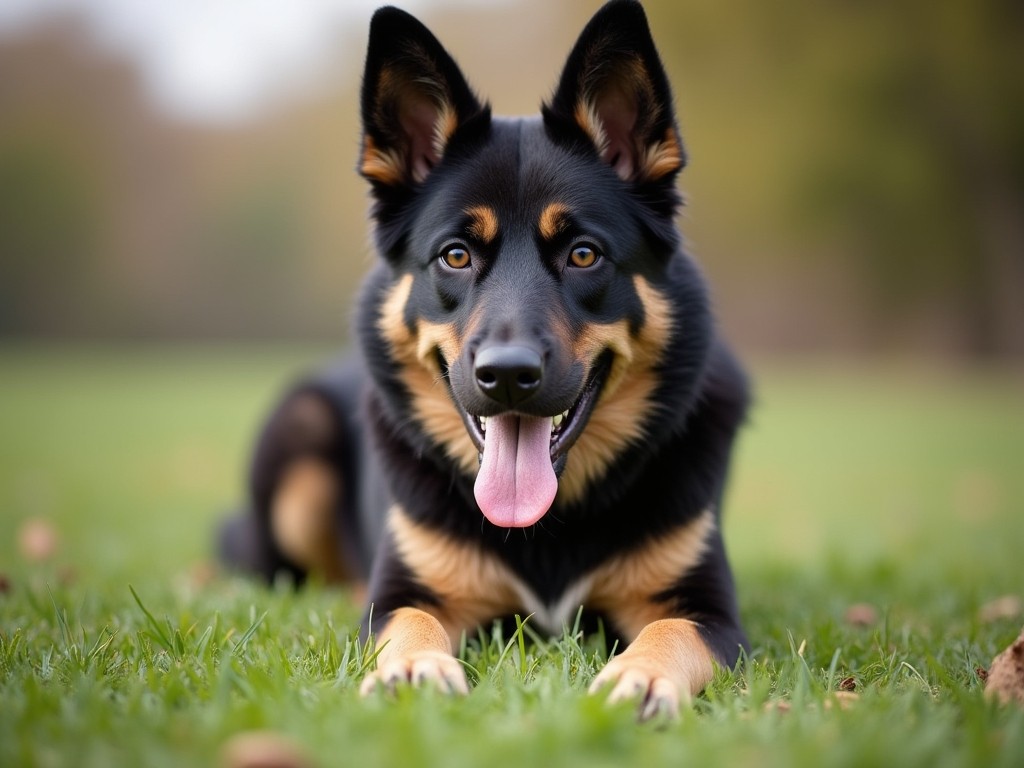
Appearance: A Striking Combination
The appearance of Border Collie German Shepherd mix puppies can vary considerably, as they may inherit physical traits from either parent breed in different combinations.
Size and Build: Shollies are typically medium to large-sized dogs. Adults usually weigh between 45-80 pounds and stand 20-25 inches tall at the shoulder. Males tend to be larger than females, and the final size often depends on which parent breed’s genes are more dominant.
Coat Characteristics: Most Shollies have double coats that can range from medium to long length. The coat texture may be more similar to the Border Collie’s weather-resistant coat or the German Shepherd’s dense double coat. Common coat colors include black and white (like many Border Collies), sable, black and tan, solid black, brown, or various combinations of these colors.
Facial Features: The head shape often falls somewhere between the Border Collie’s slightly rounded skull and the German Shepherd’s more angular features. Ears may be erect like a German Shepherd’s, semi-erect, or occasionally floppy like some Border Collies. Eyes are typically almond-shaped and can be brown, amber, or occasionally blue.
Body Structure: Shollies usually have athletic, well-proportioned bodies that reflect their working heritage. They often have the Border Collie’s agility combined with the German Shepherd’s substantial build, resulting in dogs that are both graceful and powerful.
Tail: The tail is typically long and may be carried low like a Border Collie’s or slightly higher like a German Shepherd’s, often with a slight curve.
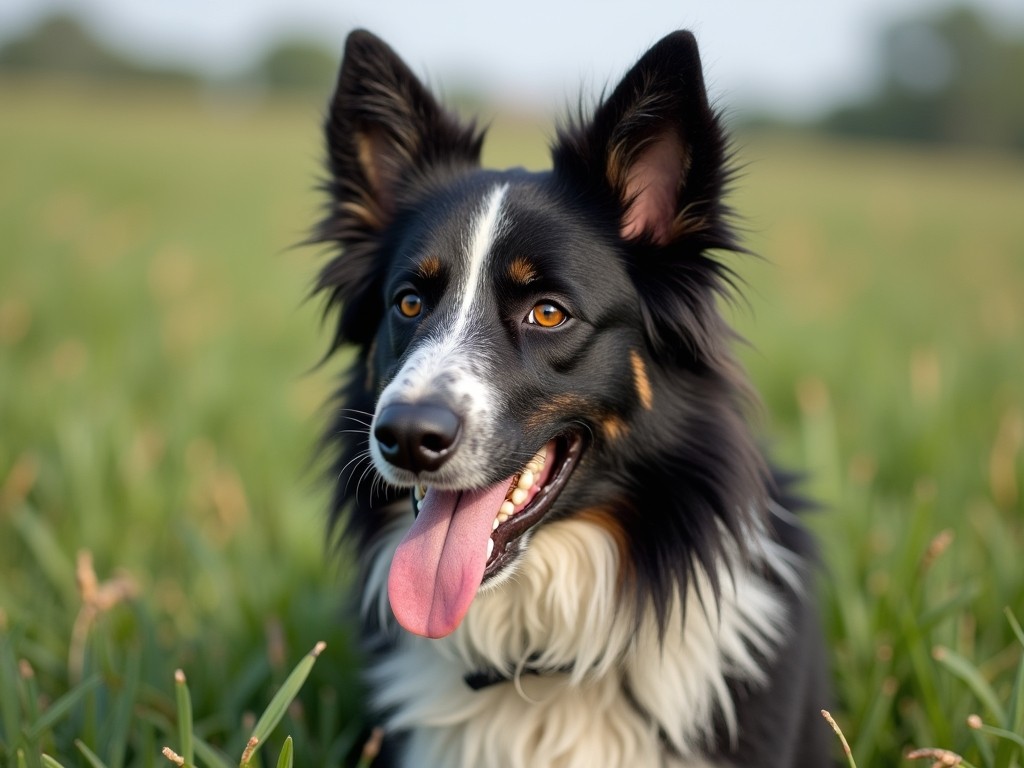
Personality and Temperament
The Border Collie German Shepherd mix inherits personality traits from both parent breeds, typically resulting in dogs with exceptional intelligence and strong working drives.
Intelligence: Shollies are extraordinarily intelligent dogs, often ranking among the smartest mixed breeds. They excel at problem-solving, learning complex commands, and adapting to new situations. This intelligence can be both a blessing and a challenge, as these dogs need constant mental stimulation.
Energy Level: These dogs have very high energy levels and require substantial daily exercise and mental stimulation. They thrive on having jobs to do and can become destructive if bored or under-exercised.
Loyalty and Bonding: Like German Shepherds, Shollies are incredibly loyal to their families and often form particularly strong bonds with one primary person. They are devoted companions who want to be involved in family activities.
Herding Instincts: Many Shollies inherit strong herding instincts from both parent breeds. They may attempt to herd children, other pets, or even adults by nipping at heels or circling. This behavior requires management and training.
Alertness: These dogs are naturally alert and make excellent watchdogs. They will typically bark to alert their families of visitors or unusual activities, though they’re generally not aggressive without cause.
Work Drive: Shollies often have intense work drives and excel in various dog sports and activities. They need outlets for their natural desires to work and please their owners.
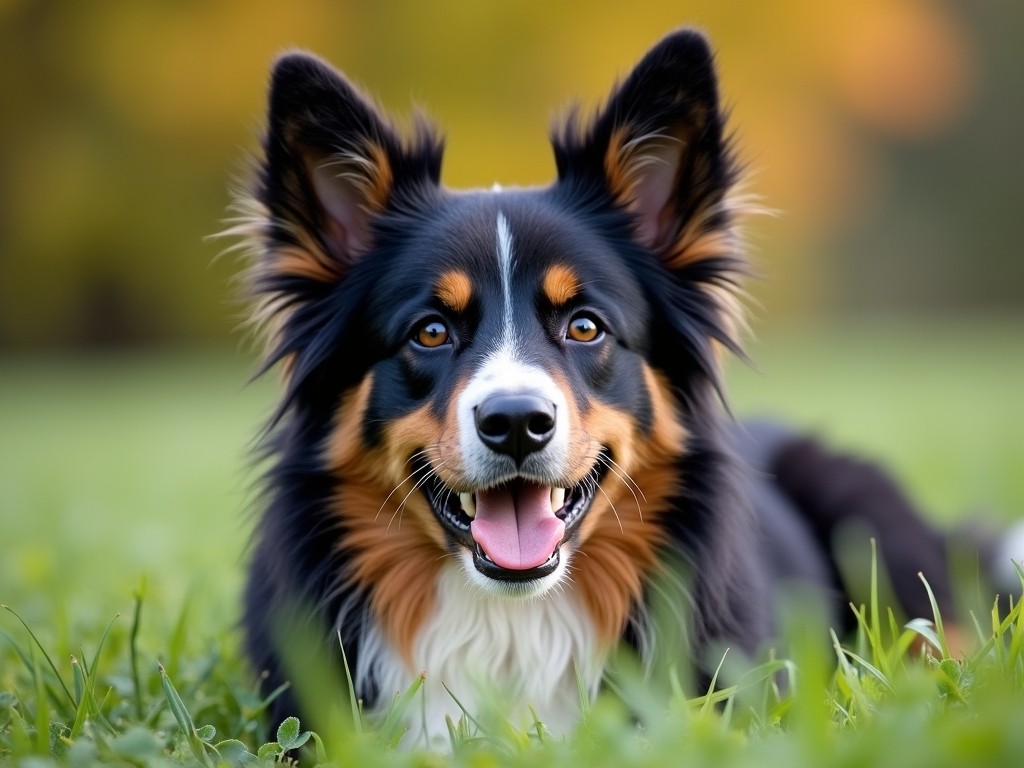
Grooming Requirements
The grooming needs of Border Collie German Shepherd mixes can be quite demanding due to their double coats and shedding patterns.
Daily Brushing: Most Shollies require daily brushing to prevent matting and manage shedding. Use a high-quality slicker brush and undercoat rake to work through both coat layers effectively.
Seasonal Shedding: These dogs typically experience heavy seasonal shedding twice yearly, during which daily brushing becomes even more critical. During “blowout” periods, professional grooming may be helpful.
Bathing: Bathe your Shollie every 6-8 weeks or as needed. Their coats are naturally dirt-resistant, so frequent bathing isn’t necessary unless they get particularly dirty.
Nail Care: Trim nails every 2-3 weeks to prevent overgrowth. Active dogs may naturally wear down their nails somewhat, but regular trimming is still necessary.
Ear Maintenance: Clean ears weekly with appropriate ear cleaning solutions, especially if your dog has semi-erect or floppy ears that may trap moisture and debris.
Dental Hygiene: Brush teeth regularly and provide appropriate chew toys to maintain good dental health. Both parent breeds can be prone to dental issues.
Coat Management: During hot weather, some owners choose to have their Shollies professionally groomed with a shorter cut, though the double coat should never be shaved completely as it provides temperature regulation.

General Care and Living Requirements
Caring for a Border Collie German Shepherd mix requires understanding their high energy needs and intelligence requirements.
Living Space: Shollies do best in homes with large, securely fenced yards where they can run and play safely. While they can adapt to apartment living, it requires significantly more exercise and mental stimulation.
Mental Stimulation: These dogs need constant mental challenges to prevent boredom and destructive behaviors. Provide puzzle toys, training sessions, and varied activities to keep their minds engaged.
Routine and Structure: Shollies thrive on routine and clear expectations. Establish consistent daily schedules for feeding, exercise, and training.
Socialization: Early and ongoing socialization is crucial for developing well-rounded adults. Expose puppies to various people, animals, environments, and experiences.
Job Opportunities: Consider activities like agility, herding trials, obedience competitions, or even therapy work to give your Shollie a sense of purpose.
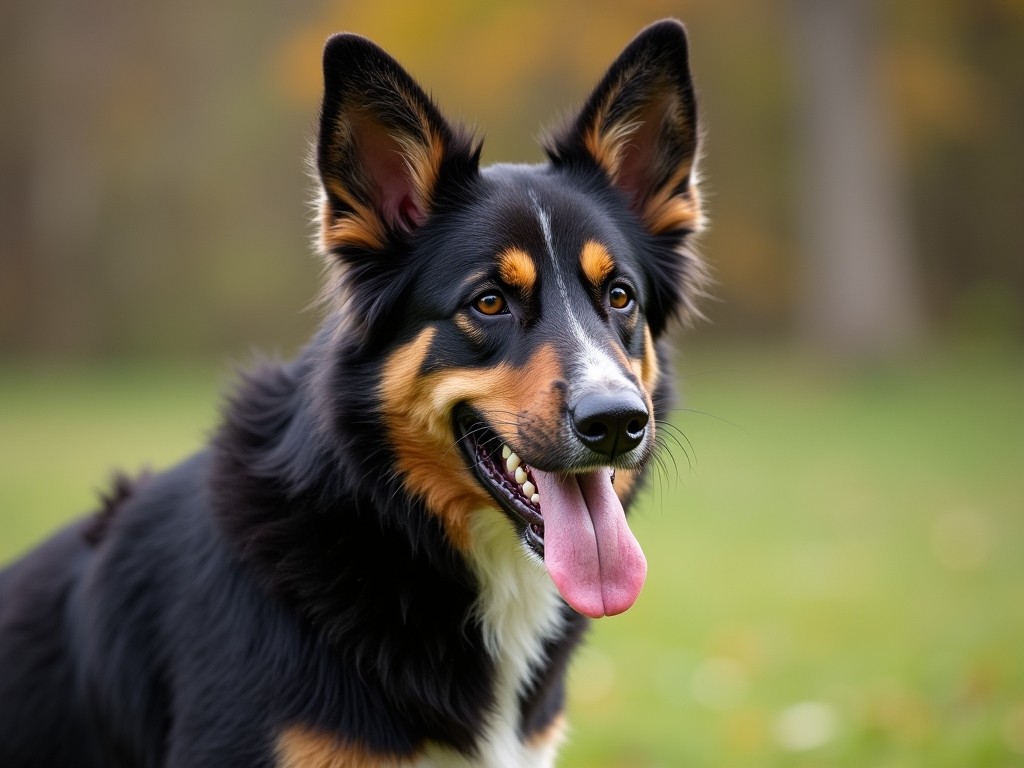
Health Considerations
Border Collie German Shepherd mixes may inherit health conditions from either parent breed, making health screening and preventive care important.
Hip and Elbow Dysplasia: Both parent breeds can be prone to joint dysplasia. Reputable breeders screen breeding dogs for these conditions.
Eye Conditions: Border Collies can be prone to various eye conditions including Collie Eye Anomaly and Progressive Retinal Atrophy. Regular eye examinations are important.
Epilepsy: Both breeds can be prone to seizure disorders. While not always preventable, early detection and management can help affected dogs live good lives.
Bloat: The deep chest inherited from the German Shepherd side can predispose Shollies to gastric dilatation-volvulus (bloat), a life-threatening emergency.
MDR1 Gene Mutation: Some Border Collies carry a gene mutation that makes them sensitive to certain medications. Genetic testing can identify carriers.
Degenerative Myelopathy: This progressive spinal cord disease can affect German Shepherds and may be inherited by mixes.
Regular Veterinary Care: Maintain regular checkups, vaccinations, and preventive care. Discuss genetic testing options with your veterinarian.
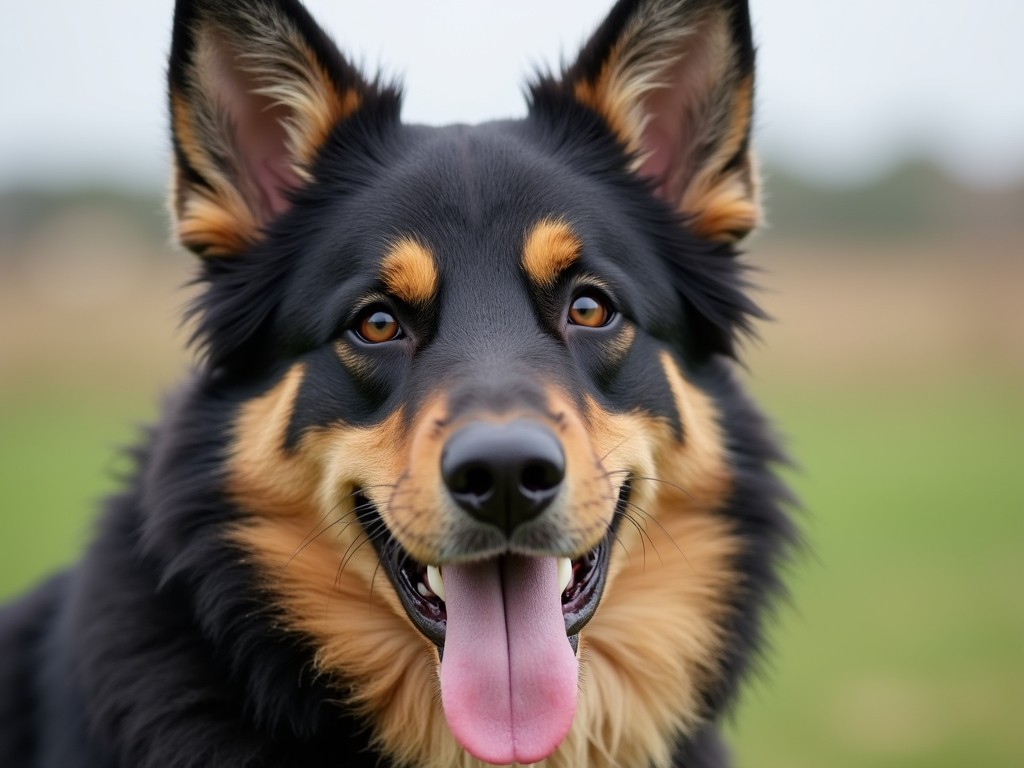
Feeding and Nutrition
Proper nutrition is essential for Border Collie German Shepherd mixes due to their high energy levels and active lifestyles.
High-Quality Food: Choose premium dog foods with high-quality protein sources and appropriate fat levels to fuel their active lifestyles. Look for foods formulated for active or working dogs.
Life Stage Nutrition: Feed puppy formula until 12-18 months for proper development, then transition to adult food. Senior formulas may be appropriate for older dogs.
Portion Control: Monitor portions carefully to prevent overeating and obesity. Active dogs may require more calories than less active dogs of similar size.
Feeding Schedule: Feed adult dogs twice daily to help prevent bloat and maintain stable energy levels. Puppies may need more frequent meals.
Special Considerations: Some Shollies may have food sensitivities inherited from either parent breed. Monitor for signs of allergies or digestive issues.
Supplements: Discuss joint supplements with your veterinarian, especially for active dogs or those predisposed to joint issues.

Exercise Requirements
Border Collie German Shepherd mixes have extremely high exercise requirements that must be met for their physical and mental well-being.
Daily Exercise Needs: Adult Shollies typically need 2-3 hours of exercise daily, including both physical activity and mental stimulation. This is more than most dog breeds require.
Varied Activities: Provide different types of exercise including walks, runs, fetch, swimming, hiking, and dog sports to prevent boredom and work different muscle groups.
Mental Exercise: Mental stimulation is as important as physical exercise. Training sessions, puzzle toys, and problem-solving games help tire their minds.
Puppy Exercise: Young puppies should have shorter, more frequent play sessions. Avoid forced exercise until growth plates close around 18-24 months.
Weather Considerations: These dogs can exercise in various weather conditions but need protection from extreme temperatures. Adjust intensity based on conditions.
Off-Leash Opportunities: Provide safe, secure areas where your Shollie can run freely. Their herding instincts mean they usually stay close to their families.
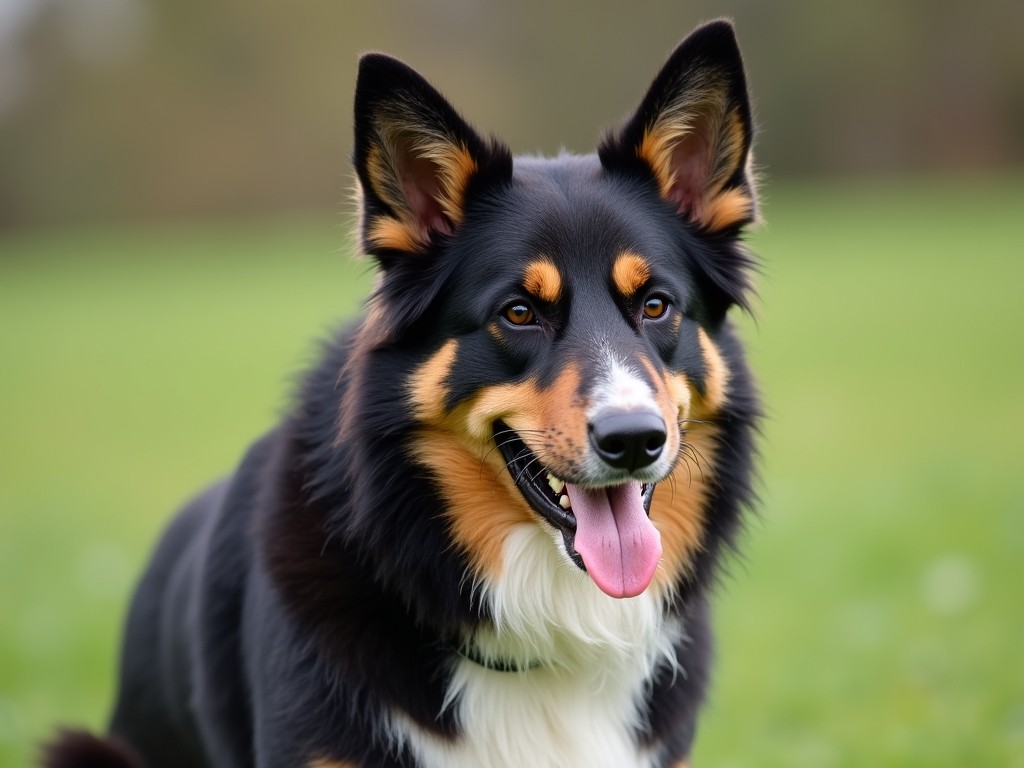
Training Your Border Collie German Shepherd Mix
Training a Shollie can be both rewarding and challenging due to their exceptional intelligence and high energy levels.
Start Early: Begin training immediately when you bring your puppy home. These intelligent dogs learn quickly and can develop bad habits just as fast as good ones.
Positive Reinforcement: Use reward-based training methods with treats, praise, and play. These dogs are eager to please and respond excellently to positive training.
Consistency: Maintain consistent rules and expectations. These intelligent dogs will quickly notice and exploit any inconsistencies in training.
Mental Challenges: Incorporate training into daily exercise routines. Teaching new tricks and commands provides mental stimulation while reinforcing your bond.
Herding Management: Address herding behaviors early by redirecting to appropriate activities and teaching strong recall commands.
Advanced Training: These dogs excel in advanced training including agility, obedience, tracking, and specialized work training.
Socialization Training: Focus heavily on socialization to ensure your dog becomes comfortable with various people, animals, and situations.

Pros of Owning a Border Collie German Shepherd Mix
Exceptional Intelligence: These dogs are among the smartest you can own, capable of learning complex tasks and commands quickly.
Incredible Loyalty: Shollies form deep bonds with their families and are devoted, faithful companions.
Versatility: These dogs can excel in various roles from family pet to working dog, therapy dog, or sport companion.
Trainability: Their intelligence and eagerness to please make them highly trainable for almost any task.
Protective Instincts: They make excellent watchdogs and will protect their families when necessary.
Athletic Ability: Perfect companions for active families who enjoy hiking, running, or outdoor adventures.
Problem-Solving Skills: These dogs can figure out complex problems and adapt to new situations easily.
Strong Work Ethic: They have intense desires to work and please their owners, making them excellent partners in various activities.
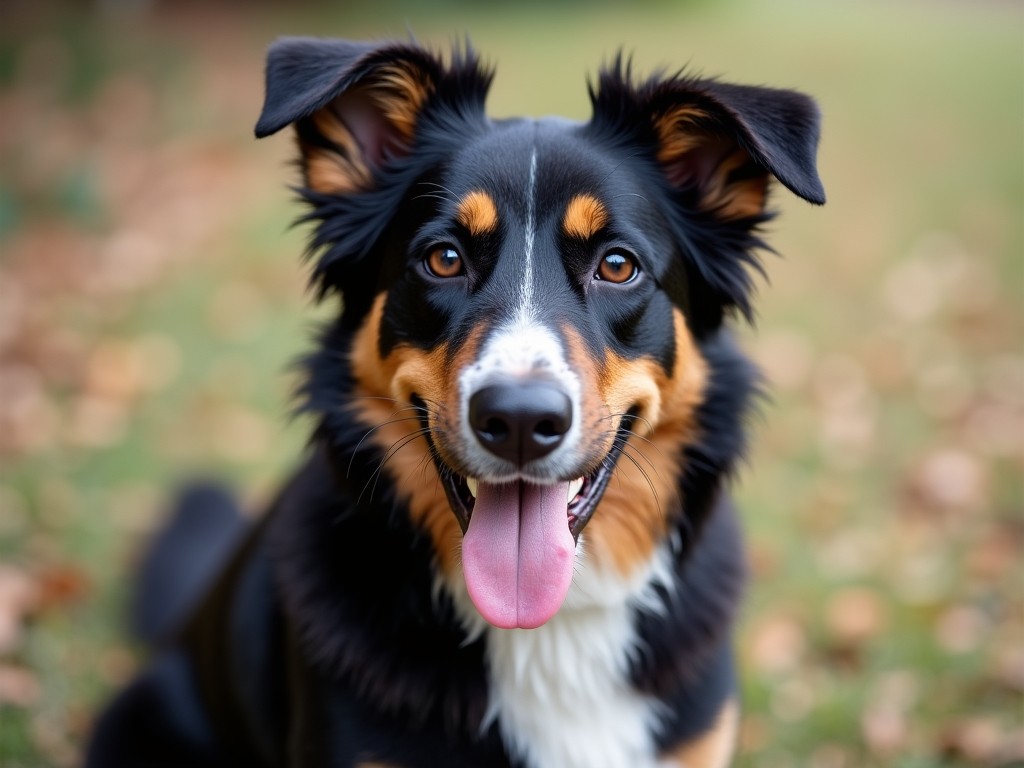
Cons of Owning a Border Collie German Shepherd Mix
Extremely High Exercise Needs: These dogs require 2-3 hours of exercise daily, which may not suit all lifestyles.
Mental Stimulation Requirements: They need constant mental challenges and can become destructive when bored.
Heavy Shedding: Year-round shedding with heavy seasonal “blowouts” require significant grooming commitment.
Herding Behaviors: May attempt to herd children, other pets, or guests, which requires management and training.
Intensity: These dogs can be overwhelming for inexperienced dog owners due to their high energy and intelligence.
Potential Health Issues: May inherit health problems from either parent breed, requiring ongoing veterinary care.
Not Suitable for Apartment Living: Their exercise needs make them challenging to keep in small living spaces.
Can Be Neurotic: Without proper outlets, these dogs can develop obsessive or anxious behaviors.

Are Border Collie German Shepherd Mixes Good with Kids?
Border Collie German Shepherd mixes can be excellent family dogs and wonderful with children when properly socialized and trained, though there are important considerations.
Natural Protectiveness: These dogs often develop strong protective instincts toward children in their family, making them excellent guardians and loyal companions.
High Energy Match: Active children who enjoy outdoor play and activities often make great companions for these high-energy dogs.
Intelligence Benefits: Their intelligence allows them to learn appropriate behavior around children and understand different rules for different family members.
Herding Considerations: The strong herding instincts may lead to nipping at children’s heels or attempting to control their movement. This behavior must be addressed through training.
Size Considerations: These medium to large dogs can accidentally knock over small children during play, requiring supervision and training.
Training Requirements: Success with children requires consistent training to establish boundaries and appropriate behavior expectations.
Socialization Importance: Early exposure to children of various ages helps ensure the dog develops appropriate responses and comfort levels.
Exercise Partnership: These dogs can be wonderful exercise partners for older children who enjoy running, hiking, or playing fetch.
Teaching Opportunities: The intelligence of Shollies provides excellent opportunities to teach children about responsible pet ownership and animal training.

Finding Your Border Collie German Shepherd Mix
Finding a well-bred Border Collie German Shepherd mix requires careful research and patience to locate reputable breeders or rescue organizations.
Breeder Research: Look for breeders who health test both parent dogs, provide health guarantees, and prioritize temperament alongside appearance. Reputable breeders will be knowledgeable about both parent breeds.
Health Testing: Ensure both parent dogs have been tested for breed-specific health conditions including hip/elbow dysplasia, eye conditions, and genetic disorders.
Meet the Parents: If possible, meet both parent dogs to get an idea of potential temperament and size of the puppies.
Early Socialization: Choose breeders who begin socialization early and expose puppies to various experiences, people, and environments.
We here at German Shepherd Puppies NC take great pride in breeding the best German Shepherd puppies in all of North Carolina. As North Carolina’s premier German Shepherd experts, German Shepherd Puppies NC has been breeding award-winning AKC quality German Shepherd puppies since 1991. Whether you’re looking for black German Shepherd puppies, white puppies, blue puppies, sable puppies, or long-haired puppies, we have the expertise and commitment to excellence that ensures each puppy is raised with proper socialization, health screening, and the foundation for becoming an exceptional family companion.
If you would like to request a Border Collie German Shepherd mix, please contact us as we would be glad to discuss our breeding program and help you understand more about these remarkable hybrid dogs. Our decades of experience in breeding German Shepherds gives us unique insights into creating healthy, well-tempered mixes that combine the best traits of both parent breeds.

Preparing for Your Shollie Puppy
Bringing home a Border Collie German Shepherd mix puppy requires preparation for their specific needs and characteristics.
Puppy-Proofing: These intelligent puppies can get into trouble quickly. Secure your home and remove anything potentially dangerous or valuable.
Exercise Planning: Develop exercise and mental stimulation plans before your puppy arrives. These dogs need structured activities from an early age.
Training Preparation: Research training methods and consider enrolling in puppy classes. Early training is crucial for managing their intelligence and energy.
Socialization Planning: Plan to expose your puppy to various experiences, people, and animals during their critical socialization period.
Grooming Supplies: Invest in quality grooming tools including slicker brushes, undercoat rakes, and nail clippers.

Long-term Commitment
Owning a Border Collie German Shepherd mix represents a significant long-term commitment that should be carefully considered.
Lifespan: These dogs typically live 10-14 years, representing a long-term commitment to their care and well-being.
Ongoing Costs: Consider expenses including food, veterinary care, grooming, training, and supplies over their lifetime.
Time Investment: These dogs require significant daily time investment for exercise, training, grooming, and companionship throughout their lives.
Lifestyle Compatibility: Ensure your lifestyle can accommodate an active, intelligent dog for their entire lifetime, considering potential changes in your circumstances.

Conclusion
The Border Collie German Shepherd mix represents an extraordinary combination of intelligence, loyalty, and athleticism that can make an outstanding companion for the right family. These dogs offer the unique opportunity to experience the combined best traits of two exceptional breeds in one remarkable package.
Success with a Shollie requires understanding their high exercise needs, providing adequate mental stimulation, and committing to consistent training and socialization. When these requirements are met, Border Collie German Shepherd mixes reward their families with unmatched devotion, intelligence, and companionship.
For those ready to embrace the challenge and rewards of owning one of these exceptional dogs, working with experienced breeders who understand both parent breeds is essential. If you are looking for German Shepherd puppies for sale near me, then look no further than German Shepherd Puppies NC. Our commitment to excellence in breeding, combined with our understanding of the German Shepherd’s unique characteristics, ensures that you’ll receive a puppy that’s been properly prepared for life as your family companion.



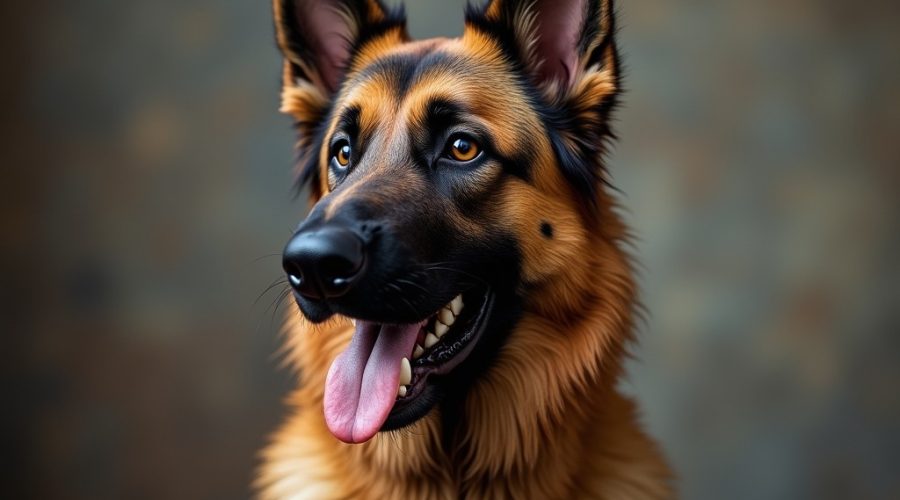











Our Social Media Channels